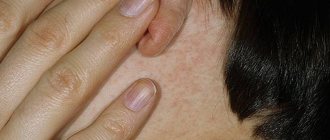Home | About us | Delivery | Advertisers | Login | Registration
- Medicines
- dietary supplementsVitamins
- Categories from A to Z
- Brands from A to Z
- Products from A to Z
- Medical equipment
- beauty
- Child
- Care
- Honey products appointments
- Herbs and herbal teas
- Medical nutrition
- Journey
- Making medicinesStock
Pharmacy online is the best pharmacy in Almaty, delivering medicines to Almaty. An online pharmacy or online pharmacy provides the following types of services: delivery of medicines, medicines to your home. Online pharmacy Almaty or online pharmacy Almaty delivers medicines to your home, as well as home delivery of medicines in Almaty.
my basket
Apteka84.kz is an online pharmacy that offers its customers medicines, medicinal and decorative cosmetics, dietary supplements, vitamins, baby food, intimate products for adults, medical equipment and thousands of other medical and cosmetic products at low prices. All data presented on the Apteka84.kz website is for informational purposes only and is not a substitute for professional medical care. Apteka84.kz strongly recommends that you carefully read the instructions for use contained in each package of medicines and other products. If you currently have any symptoms of the disease, you should seek help from a doctor. You should always tell your doctor or pharmacist about all the medicines you take. If you feel you need further help, please consult your local pharmacist or contact our GP online or by telephone.
© 2021 Pharmacy 84.
Fluconazole capsules 150 mg packaging No. 1
Insert leaflet for the use of the medicinal product FLUCONAZOLE capsules 50 mg, 150 mg (information for the patient) Registration number: Trade non-proprietary name: fluconazole International non-proprietary name: Fluconazole Dosage form: capsules Before* you start taking this medicine, read the entire leaflet carefully . -Don't throw away this brochure; you may have to read it again. — If you have any questions, ask your doctor or pharmacist. — This medicine must be prescribed to you by a doctor. Do not pass it on to others. It can harm them, even if their symptoms are the same as yours. - If any of the side effects become serious, or if you notice any side effects not listed here, please tell your doctor or pharmacist. What is Fluconazole and what is it used for Description: cylindrical hard gelatin capsules with hemispherical ends, with a turquoise cap and a white body No. 3 (dosage 50 mg), with a turquoise cap and body No. 1 (dosage 150 mg). Composition per capsule: active ingredient: fluconazole - 50 mg or 150 mg, excipients: lactose, calcium hydrogen phosphate dihydrate, microcrystalline cellulose, talc. Composition of 50 mg capsule shell - cap: gelatin, water, titanium dioxide, azorubine E 122, quinoline yellow E 104, patent blue V E 131, brilliant black E 151; body: gelatin, water, titanium dioxide E 171. Composition of capsule shell 150 mg - cap, body: gelatin, water, titanium dioxide (E171), azorubine (E122), quinoline yellow (E104), patent blue V (E131), brilliant black (E151). Fluconazole belongs to a group of drugs called “antifungals”. The active substance is fluconazole. The drug Fluconazole is used to treat infections caused by fungi, as well as to prevent candida infections, the most common fungal infections caused by yeast belonging to the Candida group. Prescribed by a doctor to treat the following types of fungal infections: Adults: Cryptococcal meningitis - a fungal infection in the brain; Coccidioidomycosis is a disease of the bronchopulmonary system; Infections caused by Candida and found in the blood and internal organs (eg, heart, lungs) or urinary tract; Mucosal thrush is an infection of the mucous membrane of the mouth, throat and when wearing dentures; Genital thrush is an infection of the vagina or penis; Skin infections - such as athlete's foot, ringworm, itching, nail infection. Fluconazole is also prescribed to: Prevent the return of cryptococcal meningitis; Reducing the recurrence of vaginal thrush; Prevention of fungal infections in patients with reduced immunity; Children and adolescents (from 0 to 17 years): Mucosal thrush is an infection that affects the mucous membrane of the mouth and throat; Infections caused by Candida and found in the blood and internal organs (such as the heart and lungs) or urinary tract; Cryptococcal meningitis is a fungal infection in the brain. Fluconazole is also prescribed to: Prevent the return of cryptococcal meningitis; Prevention of fungal infections in patients with reduced immunity. Do not take Fluconazole if you: - have an allergy (hypersensitivity) to fluconazole or other drugs for the treatment of fungal infections or to the components that make up Fluconazole; — taking astemizole, terfenadine (antihistamines for allergies); — taking cisapride (used for stomach upset); - taking pimozide (used to treat mental illness); - are taking quinidine (used to treat heart disease); - are taking erythromycin (an antibiotic to treat fever) - Tell your doctor if you: - have liver or kidney disease; - have heart disease, including changes in heart rate; have abnormal potassium levels; calcium or magnesium in the blood - severe skin reactions develop (itching, redness of the skin, or difficulty breathing) Use of other medications Tell your doctor if you are taking astemizole, terfenadine (an antihistamine to treat allergies), cisapride (used for upset stomach) , pimozide (used to treat mental illness), quinidine (used to treat cardiac arrhythmia) or erythromycin (an antibiotic to treat infections) as they should not be taken with Fluconazole. There are drugs that may interact with Fluconazole. Make sure that your doctor knows that you are taking any of the following medicines: - Rifampicin or rifabutin (antibiotics for infections); — Alfentanil, fentanyl (used as an anesthetic); - Amitriptyline, nortriptyline (used as an antidepressant); — Amphotericin B, voriconazole (antifungal); - Medicines that thin the blood to prevent blood clots (warfarin or similar medicines); - Benzodiazepines (midazolam, triazolam or similar medicines) used for sleep disturbances or anxiety; - Carbamazepine, phenytoin (used to treat seizures); - Nifedipine, isradipine, amlodipine, felodipine and losartan (for hypertension); - Cyclosporine, everolimus, sirolimus or tacrolimus (to prevent transplant rejection); - Cyclophosphamide, vinca alkaloids (vincristine, vinblastine) or similar medicines used to treat cancer; - Halofantrine (used to treat malaria); - Statins (atorvastatin, simvastatin and fluvastatin or similar medicines) used to lower high cholesterol levels; — Methadone (used to relieve pain); - Celecoxib, flurbiprofen, naproxen, ibuprofen, lornoxicam, meloxicam, diclofenac (non-steroidal anti-inflammatory drugs (NSAIDs)); — Oral contraceptives; — Prednisolone (steroid drug); - Zidovudine, also known as AZT; saquinavir (used in HIV-infected patients); - Medicines to treat diabetes, such as chlorpropamide, glibenclamide, glipizide and tolbutamide; - Theophylline (used to control asthma); — Vitamin A (food supplements). Please tell your doctor or pharmacist if you are taking or have recently taken any other medicines, including medicines sold without a prescription. Take Fluconazole with food and drink. Pregnancy and breast-feeding Tell your doctor if you are pregnant, trying to become pregnant, or breast-feeding. You should not take Fluconazole if you are pregnant or breastfeeding. Driving vehicles or other machinery. When driving vehicles or using other machinery, be aware that dizziness or dizziness may sometimes occur. Important information about some This medicine contains small amounts of lactose (the milk tolerance of some sugars, please tell your doctor if you are taking this medicine. How to use it. take Fluconazole Always take the medicine exactly as prescribed by your doctor. Swallow the capsule whole with a glass of water. It is best to take the capsules at the same time each day. The standard doses of this drug are listed below: Adults: For the treatment of cryptococcal meningitis: 400 mg on the first day, then 200 mg to 400 mg once daily for 6 to 8 weeks or longer if necessary. Sometimes increased to 800 mg. To prevent recurrence of cryptococcal meningitis: 200 mg once daily for indefinitely.For the treatment of coccidioidomycosis: 200 mg to 400 mg once daily for 11 months to 24 months or longer as needed. Sometimes the dose is increased to 800 mg. For the treatment of internal fungal infections caused by Candida: 800 mg on the first day, then 400 mg once daily indefinitely. For the treatment of infections of the mucous membrane of the mouth, throat and from wearing dentures: 200 mg to 400 mg on the first day, then 100 mg to 200 mg until symptoms disappear completely. For the treatment of candidal stomatitis - the dose depends on where the infection is located: 50 mg to 400 mg once a day for 7 to 30 days, until signs disappear completely. To prevent recurrent infections of the mucous membrane of the mouth and throat: from 100 mg to 200 mg once a day or 200 mg 3 times a week, until the risk of infection disappears. For the treatment of vaginal thrush: 150 mg once. To prevent recurrence of vaginal thrush: 150 mg every three days for a total of 3 doses (day 1, day 4 and day 7), and then once a week for 6 months until the risk of infection disappears. For the treatment of fungal infections of the skin and nails: Depending on the location: 50 mg once a day, 150 mg once a week, 300 to 400 mg once a week for 1 to 4 weeks (athlete's foot - up to 6 weeks, if the nails are affected - until the infected nail is replaced). For the prevention of fungal infections in patients with reduced immunity: from 200 mg to 400 mg once a day until the risk of infection disappears. Use in adolescents from 12 to 17 years of age Depending on weight and pubertal development, the doctor should evaluate which dose of the drug (for adults or for children) is optimal for the patient. Use in children under 11 years of age The maximum dose for children is 400 mg per day. The dose is calculated based on the child’s weight in kilograms. For the treatment of infections of the mucous membrane of the mouth and throat caused by Candida - the dose and duration depend on the severity of the infection and its location: 3 mg per kg of body weight (6 mg per kg of body weight on the first day). Cryptococcal meningitis or internal fungal infections caused by Candida: 6 mg to 12 mg per kg body weight. For the prevention of fungal infections in children with reduced immunity caused by Candida: 3 mg to 12 mg per kg of body weight. Use in children 0 to 4 weeks of age Use in children 3 to 4 weeks of age: Same doses as above, but once every 2 days. The maximum dose is 12 mg per kg body weight every 48 hours. Use in children less than 2 weeks: The same doses as above, but once every 3 days. The maximum dose is 12 mg per kg body weight every 72 hours. Doctors sometimes prescribe different doses. You should always take the medicine exactly as prescribed by your doctor. You should consult your doctor or pharmacist if you are unsure about the dose. Elderly patients: Prescribe the usual adult dose unless there are kidney problems^. Patients with kidney disease Your doctor may change your dose depending on your kidney function. d If you take more Fluconazole than necessary, taking a large number of capsules at a time may cause a deterioration, contact your doctor or the nearest hospital. Symptoms of possible overdose may include auditory, visual and sensory hallucinations (hallucinations and paranoid behavior). Symptomatic treatment should be adequate (supportive therapy and gastric lavage, if necessary). If you forget to take Fluconazole Do not take a double dose to make up for the missed dose. If you forget to take a dose, take it as soon as you remember. If it is time for your next dose, do not take the dose you missed. If you have any further questions about using this medicine, consult your doctor or pharmacist. Side effects Like all medicines, Fluconazole may cause side effects. Some people develop allergic reactions, although serious allergic reactions are rare. Tell your doctor right away if you have any of the following symptoms: sudden shortness of breath, difficulty breathing, or chest tightness; swelling of the eyelids, face or lips; itching all over the body, redness of the skin, skin rash, severe skin reactions such as a rash that causes blistering (may appear in the mouth and tongue). Fluconazole may cause liver problems which include: fatigue; loss of appetite; vomiting; yellowing of the skin or whites of the eyes (jaundice). If you notice any of these signs, stop taking Fluconazole and tell your doctor immediately. Other side effects: Additionally, if any of the following side effects become serious, or if you have a side effect not listed in this list, please tell your doctor or pharmacist. Common general side effects (1 to 10 cases per 1000): headache; stomach discomfort, diarrhea, nausea, vomiting; increase in liver function values in the blood; rash. Common non-common side effects (1 to 10 per 1,000): decreased red blood cell count, which may cause weakness, shortness of breath, or pale skin; decreased appetite; insomnia; problems falling asleep; paroxysm, dizziness, ringing in the ears, tingling or numbness, changes in taste; constipation, difficulty digestion, gas formation, dry mouth; muscle pain; impaired liver function and yellowing of the skin and eyes (jaundice); blisters, pemphigus (urticaria), itching, increased sweating; fatigue, general feeling of malaise, fever. Rarely encountered side effects (1 to 10 cases per 10,000): decreased white blood cell levels (protect the body from infections), decreased platelet count, externally manifested by changes in skin color (red or purple), other changes in blood chemistry parameters (high blood levels of cholesterol, fats); low potassium levels in the blood; trembling; abnormal electrocardiogram (ECG), change in pulse or rhythm; liver failure; allergic reactions (sometimes severe), including blistering and peeling rashes, severe skin reactions, swelling of the lips or face; hair loss. How to store Fluconazole - Keep out of the reach of children. — Store in a place protected from light at a temperature not exceeding 25 0 C. — Do not use Fluconazole after the expiration date indicated on the package. Packaging: Dosage 50 mg: 7 or 14 capsules in a polymer jar. Dosage 150 mg: 1 capsule in a polymer jar.
The sealing agent is medical cotton wool. One can along with an insert in a cardboard box. Shelf life: 3 years. Do not use after the expiration date Conditions for dispensing from pharmacies: Medicine Fluconazole, capsules 50 mg according to a doctor's prescription. The drug Fluconazole, capsules 150 mg without a doctor's prescription. Produced by: Belarusian-Dutch joint venture limited liability company "Farmland" (JV LLC Farmland), Republic of Belarus, Nesvizh, st. Leninskaya, 124-3, tel/fax (+375 17) 262-49-94.










